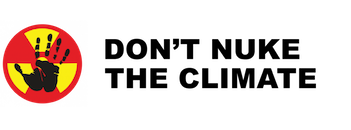ZLN Lubmin
Operating since 1997, the ZLN (Zwischenlager Nord – interim repository north) was intended to serve as a repository only for nuclear waste from the deconstruction of the two East German NPPs Rheinsberg and Lubmin (Greifswald).
It is located on the grounds of the former Nuclear Power Plant Greifswald in Mecklenburg-Vorpommern in the north east of Germany. The storehouse has 20,000 sqm and is oversized for the purpose it was built for. It has eight segments. While segments 1-7 are for low and medium radioactive waste, segment 8 contains the high radioactive nuclear fuels in Castor containers. Up to 80 are permitted.
The ZLN does not have a "hot cell", where damaged Castor containers could be repared and isolated in an emergency.
The ZLN is operated by the state-owned EWN (Energiewerke Nord GmbH) and is the only interim storage that is owned by the German federation. Because EWN bought the WAK (nuclear reprocessing plant) in Karlsruhe and the AVR Jülich research reactor, the nuclear waste from there is planned to be stored in Mecklenburg-Vorpommern. The federal state and the concerned communities do not have influence on these decisions.
In late 2010 and early 2011, two nuclear waste transports to the ZLN are planned. The nuclear waste comes from the nuclear research ship "Otto Hahn", the KNK research reactor in Karlsruhe and 60,000 liters of high nuclear waste and vitrified nuclear waste from the WAK. Enriched with 16kg of Plutonium and 500kg Uranium the "nuclear soup" from Karlsruhe is one of the most toxic waste accumulations of Germany's nuclear industry.
The costs of the waste disposal are covered mainly by taxpayer's money, because the industry has capped their share. The budget committee of the German Bundestag has approved of a financial planning of more than 1 billion Euros for further operation of the ZLN beyond 2039 until 2080. The course is set for a long-term storage of nuclear waste. An expansion is probable and aimed at by the EWN. In 2009, they have asked the for permission for storage of low and medium radioactive waste from all over Germany for an unlimited peroid. So far, there is only a permission for buffer storage for 10 years.
Who is EWN? EWN is a state-owned company
- deconstruction of the former GDR reactors in Rheinsberg and Greifswald
- deconstruction of the nuclear reprocessing plant WAK in Karlsruhe
- disassembly of reactor parts of nuclear submarines in Murmansk, Russia
- deconstruction of the AVR Jülich research reactor
- storage of nuclear waste in ZLN at the former NPP Greifswald

